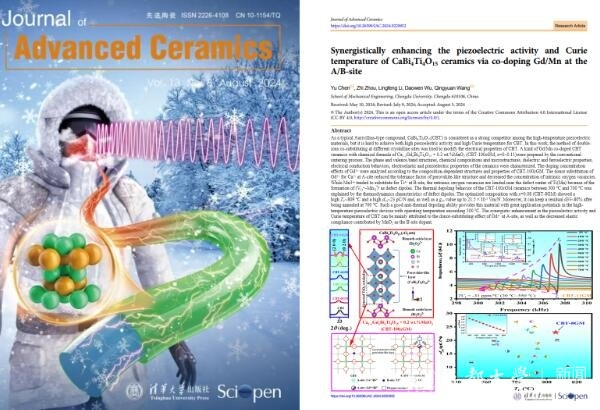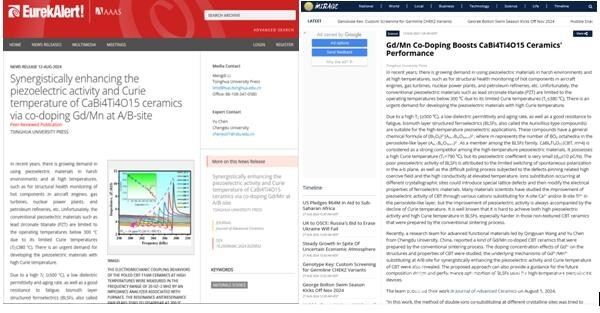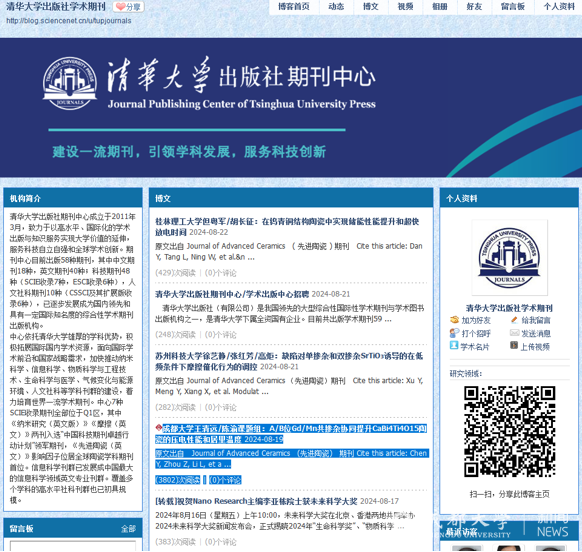Recently, Professor Chen Yu's team from the School of Mechanical Engineering, Chengdu University has made important progress in the research on high-temperature piezoelectric ceramic materials. The relevant research achievements were published in the paper titled "Synergistically enhancing the piezoelectric activity and Curie temperature of CaBi4Ti4O15ceramics via co-doping Gd/Mn at A/B-site" on Journal of Advanced Ceramics online (IF=18.6, CAS Material Science Q1), the Top 1 journal of ceramics (doi:10.26599/jac.2024.9220952). After its publication, the paper was featured by multiple academic websites such as EurekAlert!, a global technology news service operated by the American Association for the Advancement of Science (AAAS), miragenews, an Australia news website, and China ScienceNet.cn - blog (Tsinghua University Press - Journal Center). It has attracted the attention of scholars at home and abroad. Chengdu University is the only institution to complete this paper.



A high temperature and high performance CaBi4Ti4O15 (CBT) piezoelectric ceramics via co-doping Gd3+/Mn3+ at A/B-site is proposed in the paper. It has successfully solved the problem that the bismuth layered ferroelectrics (BLSFs) have a difficult coexistence of high Curie temperature and high voltage dielectric coefficient, providing a high performance sensitive material for piezoelectric sensors operating above 500°C. In addition, the paper also comprehensively characterizes crystalline phase/valence band/microstructure, dielectric/ferroelectric/piezoelectric properties, conductivity spectrum and high-temperature conductance mechanism, electroelastic property and thermal depolarization behavior of ceramics and deeply reveals the ion doping effects of Gd3+ and Mn3+ at A and B sites of CBT-type perovskite layer respectively. It points out the direction for composition design and performance optimization of high-temperature piezoelectric materials for future applications in extreme environment conditions.
At present, material samples have been sent to enterprises for the packaging test of 650°C high-temperature piezoelectric acceleration sensors. This ceramic material is expected to be practically applied in health diagnosis and fault warning systems of major technical equipment such as aeroengines, heavy gas turbines and nuclear power units in China.
This work was funded by the General Program of National Natural Science Foundation of China (No. 12372179) and the Open Project of State Key Laboratory of Mechanics and Control of Mechanical Structures (No. MCMS-E-0522G01).
The participants engaged in this research included postgraduate Zhou Zhi, instructors Wu Daowen and Li Lingfeng and Professor Wang Qingyuan from the School of Mechanical Engineering.
To access the original text, please click on https://www.sciopen.com/article/10.26599/JAC.2024.9220952.